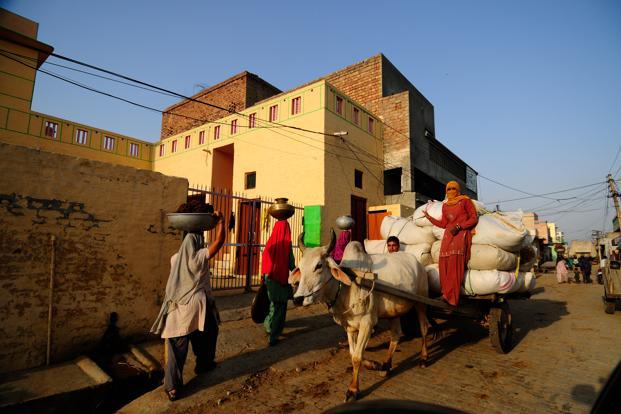
At the heart of India encompassing five states lies the vast expanse of Gondwana, where three million people speaking Gondi live, cut off from the world of newspapers, magazines, televisions and the digital media.
Activists dispute the 2011 census figure of three million, and claim at least 10 million speak Gondi. Gondi is primarily spoken by adivasis in Maharashtra, Madhya Pradesh, Chhattisgarh, Odisha and Andhra Pradesh, large parts of which are facing a Maoist insurgency. It is believed that due to this, the census could not cover all Gondi-speakers.
There is nothing printed or broadcast for the Gondi-speakers. You will not find any form of media that covers or make themselves available for them. All India Radio, which broadcasts in 82 languages and dialects, has nothing for Gondwana. Most journalists do not understand Gondi. Therefore, as far as Gondi and its speakers are concerned, there is no medium for mass communication.
The advent of mobile phones has led to more than 100% wireless penetration in many cities and urban areas.
However, villages and rural areas constitute the overall 75% who do not even use mobile phones as a medium. If you travel across Gondwana, you can find mobile phones in single-digit numbers per village. Mobiles are mostly switched off or used only to make calls and hardly used to receive calls.
Many areas do not receive electricity to charge phones or are not covered by mobile signals. In some places, there are fixed spots for charging phones and identified areas where signals are available.
In the past few years, Gondwana, its people and the Gondi language have become the subject of an in-depth exploration for Shubhranshu Chowdhary.
Many know Chowdhary as the former BBC journalist who runs CGnet Swara, a website which beams the voices of Gondis. Shubhranshu is also an mBillionth awardee for the innovative use of mobile as a tool for citizen journalism. Sinc
e mobiles have some presence despite obstacles, Shubhranshu has focused on them as a medium to source information from the Gondis and the Internet as medium and platform to publish, and connect Gondis to the world. Simple Gondi men and women have been trained to call a number and record their voices as citizen journalists and get published after vetting by a moderator.
Chowdhary’s ultimate aim is total democratisation of the media through Internet and mobiles, where content production is not in the hands of a few selected ones, but in the hands of the people. The underlying philosophy is, “Only a level-playing medium like Internet and democratic tools like mobiles can make it possible.”
In the last one month, 20 Gondi speakers in two groups under the banner of CGnet Swara are travelling across all five states of Gondwana. They are volunteers or citizen journalists-cum-campaigners for Gondi, its culture and language. They are trained to use oral media like puppetry, drama, stage, theatre and cultural shows, posters and fliers to motivate people to gather them around market places, crossroads and village community areas. There, they promote the use of mobile to seek and disseminate information. In one month, more than 300 shows were organised, at the rate of two to four villages and two to three markets per day.
By now, CGnet Swara is receiving about 800 calls a day from the Gondi speakers to record and broadcast their voices around issues on exploitation of water and land, absence of entitlements and amenities and so on. The journey has started towards its logical end!
In the coming days, it will be interesting to see how mobile as a new media tool of journalism can turn into the most democratic tool of information equality for those who are illiterate, uneducated and speak languages understood by no one else.
Osama Manzar is founder and director of Digital Empowerment Foundation and chair of mBillionth Award. He is also a member of working group for IT for masses at the ministry of communication & IT. Tweet him @osamamanzar










